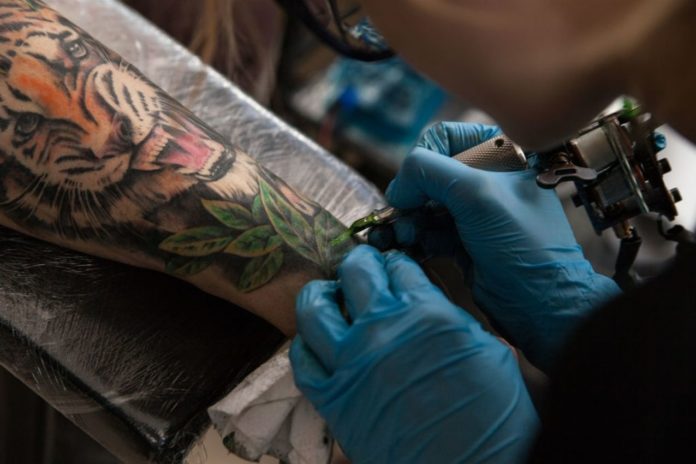A recent study, published in the Journal of Applied Physiology, says that tattooed skin sweats less than non-inked skin, which may have implications for the body’s ability to cool down in persons who have extensive tattooing.
Sweating normally assists the body in regulating its temperature. Eccrine sweat glands, which are located throughout the body, create predominantly water-based sweat to help cool the body. Eccrine gland damage may impede the sweating response, increasing the risk of overheating.
Earlier studies have discovered that tattooed skin has a greater salt concentration in the sweat, implying impaired function of the eccrine sweat ducts. Tattooing requires up to 3,000 skin punctures each minute, which may cause sweat gland injury.
The researchers examined individuals who had tattoos measuring at least 5.6 square centimetres on their upper or lower arms, as well as nearby portions of untattooed skin. To induce a total-body sweating response, volunteers donned a perfusion suit that circulated hot water up to 120 degrees Fahrenheit for 30 minutes or longer.
The research team took temperature readings of the subjects’ internal body temperature, sweat rate, and skin temperature on tattooed and untattooed portions of skin on the same arm.
Additionally, the researchers used laser techniques to determine the blood flow in the skin. The blood flow measurements, on the other hand, were unreliable, which was most likely due to the reflecting or absorbent qualities of the inks used in the individuals’ tattoos.
The researchers noted that when exposed to heat, both tattooed and untattooed areas began to sweat at approximately the same time, indicating that nerve impulses to the sweat glands operate normally in tattooed skin. The decrease in perspiration production, on the other hand, may indicate that glandular injury occurred as a result of the repeated puncturing of the skin during tattoo application.
Although small tattoos are less likely to interfere with overall body temperature regulation, decreased sweating in tattooed skin “could impact heat dissipation especially when tattooing covers a higher percentage of body surface area,” the researchers wrote.
“The primary new finding in the current study is that peripheral [hair follicle-containing] skin of the arm containing tattoos has reduced sweat rates, and thus potential heat loss capacity, during [whole-body heating] compared to adjacent skin without tattoos,” the researchers wrote.
“These data indicate that the collateral effects of the tattooing process negatively impact eccrine sweat gland function and could be considered a potential long-term complication or side effect of this cosmetic procedure,” they added.
Image Credit: Getty
